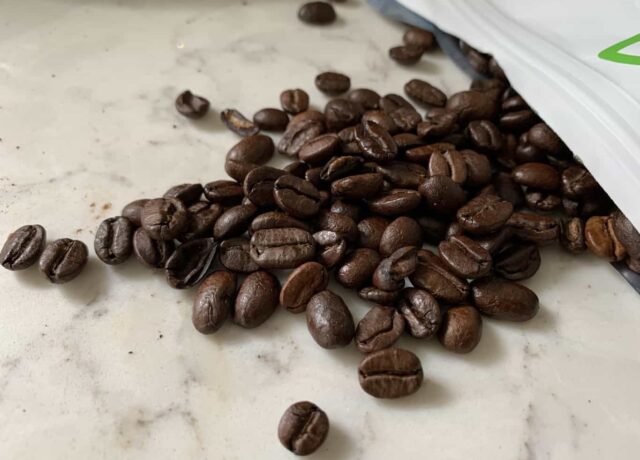Recently, there’s been a lot of talk in the media about superfoods and the health benefits of drinking coffee on a daily basis.
But can coffee cause inflammation?
It’s important to get our facts straight about things that affect our health. Monitoring our daily coffee consumption levels can have great effects on our bodies and overall health levels.
Let’s delve a little deeper and find out some of the answers to these important questions.
What is inflammation?
A lot of times when we think of the word inflammation, images of swelling immediately come to mind.
Inflammation is actually much more than just swelling. It’s your body’s response to things that it feels are trying to hurt it. This means things like toxins, infections, or even injuries.
Swelling occurs when the inflammatory response takes place and cells that have been damaged by toxins, trauma, bacteria, etc. release harmful chemicals in your body. These chemicals then cause blood vessels to leak fluid into your body’s tissues, which then causes swelling.
There are two different types of inflammation.
Acute inflammation starts rapidly and becomes severe in a short period of time. It is usually caused by tissue damage due to trauma, microbial invasion, or noxious compounds. Acute inflammation usually only lasts 2-6 weeks before being healed.
Chronic inflammation is more of a silent killer. It starts off slow and stays with the body much longer, lasting from a few months to even years depending on diet and treatment.
So why are we talking about this on a coffee blog? Well, because it matters.
We care about the health of our readers and it came to our attention that worldwide, 3 of 5 people die due to chronic inflammatory diseases like stroke.[Additionally, this also includes chronic diseases such as] chronic respiratory disease, heart disorders, cancer, obesity, and diabetes.
When your body is in a constant state of inflammation, this could lead to long term effects. Research has shown that chronic inflammation has been linked to diseases such as heart disease or stroke, and may also lead to autoimmune disorders, such as rheumatoid arthritis and lupus.
Is coffee inflammatory or anti-inflammatory?
In short, yes and no.
According to Harvard Medical School, coffee has polyphenols in it. What are polyphenols you might ask? They are these amazing little micro-nutrients that we get from certain plant-based foods. Luckily for us, coffee is one of those sources. Coffee also has other anti-inflammatory compounds that may protect against inflammation as well.
In 2011, researchers reported findings that coffee drinking is associated with a lower risk of depression among women, a lower risk of lethal prostate cancer among men, and a lower risk of stroke among both men and women.
So rest assured, our beloved coffee still provides many benefits to our everyday lives.
Daily coffee consumption may offer protection against Parkinson’s disease, type 2 diabetes, liver disease, including liver cancer, and heart attacks and strokes.
Can drinking coffee cause inflammation?
With that being said, coffee still has its potential risks.
The caffeine in coffee is still a stimulant and when consumed in excess, it has both positive and negative effects on the body.
Some negative effects can include increased risk of higher blood pressure, artery stiffness, and increased levels of homocysteine, insulin, and possibly cholesterol. These are all things that relate to or directly affect inflammation.

What are the signs of inflammation?
If your body was showing signs of chronic inflammation, would you know?
The amazing people at Webmd.com have a great slideshow on the signs of chronic inflammation on their website.
Some of the signs that you may be at risk are balance problems, insulin resistance, muscle weakness, diarrhea, lower back pain, constant fatigue, livedo reticularis rash, hardening of arteries (the main cause of heart attack and stroke), blood clotting, dry eye, and brain issues.
Click here to check out their full article and slideshow.
Is coffee allowed on an anti-inflammatory diet?
If you’re finding yourself showing signs of inflammation, you may want to consider switching to an anti-inflammatory diet. A good example of this can be found in this video by LivingHealthyChicago.
It seems that coffee, whether regular or decaffeinated, is completely allowed on an anti-inflammatory diet. However, moderation is key as excess can cause complications.
What foods cause inflammation?
For the past 5 years or so, there has been a war against sugar and the harmful effects it can have on our health. Table sugar (sucrose) and high fructose corn syrup (HFCS) are the two main types of added sugar in the Western diet. Not only can this cause inflammation, but it can also cause our blood sugar levels to rise exponentially.
People with higher sugar diets have more inflammatory markers in their blood, including a marker called C-reactive protein than those who have lower sugar diets.
We know that reading through a bunch of research can sometimes feel overwhelming, so we found this great video by A Sweet Pea Chef on inflammatory foods.
We love how she breaks down everything into easy bites of information. She even has another video on a 5-day anti-inflammatory diet meal plan as well.
Anti-inflammatory foods
Following a diet such as the Mediterranean diet, which is high in anti-inflammatory foods has been known to decrease levels of inflammation.
So what do people eat in the Mediterranean for nutrition? Think of cuisines of countries like Turkey, Spain, France, Italy, Morocco and more. Located in the Mediterranean region of the world, these people tend to eat a diet rich in fruits, vegetables, nuts, fish, olive oil and whole grains.
Other anti-inflammatory foods can include but are not limited to tomatoes, green leafy vegetables, such as spinach, kale, or collards. Also, fatty fish like salmon, mackerel, or tuna, and fruits such as strawberries, blueberries, cherries, and oranges.
Tips for reducing inflammation immediately
If you find yourself exhibiting some of the inflammatory symptoms above, and you want to know the best tips for improving your health, we’ve got you covered.
- Manage the essentials. Make sure your sleep, stress, and weight are all under control.
- Cut back on or try to eliminate excess sugar, alcohol, and other inflammatory foods.
- Adopt a healthy diet and load up on anti-inflammatory foods.
- Make time to exercise.
- Do your own research and search out informative articles or news stories to help you make the best dietary choices possible. Remember knowledge is power.
We can now breathe a sigh of relief when it comes to coffee and anti-inflammatory diets. Now that you know everything about inflammation and anti-inflammatory foods, we hope you will share this information with your loved ones and continue to choose both food and drinks that reduce your risk for disease.







